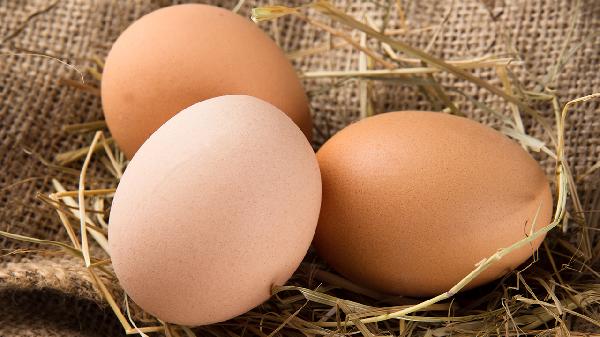Sea moss, that slimy yet intriguing sea veggie, has been making waves in the wellness scene lately. And let’s be real—when something gets hyped up as the next big superfood, it’s natural to wonder if it’s actually worth the buzz or just another overrated trend. So, is sea moss good for you? The short answer: Yes, but with some caveats. This red algae packs a serious nutritional punch, but like anything, it’s not a one-size-fits-all miracle. Let’s dive into the science, the benefits, and the not-so-great stuff so you can decide if sea moss deserves a spot in your diet.
What Exactly Is Sea Moss?
Sea moss, also called Irish moss or Chondrus crispus (if you want to get fancy with the Latin), is a type of red algae that clings to rocks along the Atlantic coasts of Europe and North America. It’s been a staple in traditional diets for centuries, especially in Caribbean and Irish cuisines, where it’s used in everything from soups to desserts. But now, thanks to TikTok and wellness influencers, sea moss has gone mainstream—popping up in smoothies, supplements, and even skincare products.
Nutritionally, sea moss is a powerhouse. A four-tablespoon serving delivers a solid dose of iodine (critical for thyroid health), along with magnesium, zinc, iron, and vitamins A, D, E, and K. Plus, it’s low in calories, making it a nutrient-dense add-on for anyone looking to boost their diet without overloading on extra energy. But here’s the kicker: While sea moss has been used traditionally for generations, modern research on its benefits is still catching up. So, while we know it’s packed with good stuff, we’re still figuring out just how much of an impact it can have on things like immunity, digestion, and skin health.
The Real Deal Benefits of Sea Moss
Okay, so what can sea moss actually do for you? Let’s break it down—no fluff, just the facts (with a side of humor because, let’s face it, reading about algae shouldn’t feel like a chore).
Thyroid Support (But Proceed With Caution)
Sea moss is loaded with iodine, a mineral that’s essential for thyroid function. Your thyroid relies on iodine to produce hormones that regulate metabolism, energy levels, and even body temperature. But here’s the thing: While iodine deficiency can mess with your thyroid, too much iodine can also cause problems—especially if you already have a thyroid condition like Hashimoto’s or Graves’ disease. So, if you’re dealing with thyroid issues, chat with your doc before going all-in on sea moss.
Immunity Booster (Maybe)
Sea moss contains antioxidants and vitamin C, both of which play a role in keeping your immune system in fighting shape. While it’s not a magic shield against every cold and flu, adding sea moss to your diet could give your immune defenses a little extra backup—especially during those brutal winter months when everyone around you seems to be sniffling.
Skin Savior (Or At Least a Solid Helper)
Thanks to its sulfur content, sea moss has earned the nickname “nature’s collagen.” Sulfur is a key player in skin health, helping with everything from elasticity to wound healing. Some people swear by sea moss for clearing up acne, soothing eczema, or just giving their skin a healthy glow. And while it’s not a replacement for a solid skincare routine, it might be worth a shot if you’re dealing with stubborn skin issues.
Gut Health Hero
Sea moss is rich in prebiotic fiber, which feeds the good bacteria in your gut. A happy gut microbiome means better digestion, fewer bloating episodes, and even improved mood (yep, your gut and brain are BFFs). Plus, the mucilage in sea moss—that gel-like texture—can help soothe an irritated digestive tract. So if your stomach’s been feeling off, sea moss might be worth a try.
Inflammation Fighter
Chronic inflammation is linked to everything from heart disease to arthritis, and sea moss’s antioxidants may help dial it down. While it’s not a cure-all, incorporating sea moss into an anti-inflammatory diet (think: lots of veggies, healthy fats, and whole grains) could help keep inflammation in check.
The Not-So-Great Side of Sea Moss
Before you start chugging sea moss smoothies like there’s no tomorrow, let’s talk about the potential downsides. Because, let’s be real, no superfood is perfect.
Heavy Metal Risk
Seaweed, including sea moss, can absorb heavy metals from the water it grows in. That means if you’re eating a ton of it, you might also be getting unwanted extras like arsenic, lead, or cadmium. To minimize risk, opt for high-quality, tested sea moss products—preferably from reputable sources that screen for contaminants.
Digestive Drama
Too much sea moss can lead to some not-so-fun digestive issues, like bloating, diarrhea, or constipation. Start with small amounts (think: a teaspoon of gel per day) and see how your body reacts before going all-in.
Blood-Thinning Effects
Sea moss has natural blood-thinning properties, which could be a problem if you’re on anticoagulant meds like Warfarin. If you’re taking blood thinners, definitely check with your doctor before adding sea moss to your routine.
How to Actually Use Sea Moss (Without It Being Weird)
So, you’re sold on giving sea moss a try—but how do you actually eat the stuff? Here’s the good news: It’s way easier than you might think.
Sea Moss Gel: The Gateway Drug
The easiest way to use sea moss is in gel form. You can buy it pre-made or whip up your own by blending soaked sea moss with water until it’s smooth. From there, the options are endless: Stir it into smoothies, mix it into oatmeal, or even use it as a thickener in soups and sauces. It’s basically a nutrient-packed, flavorless add-in that won’t mess with the taste of your favorite foods.
Supplements: For the Lazy (No Judgment)
If the idea of making sea moss gel sounds like too much work, no worries—you can find sea moss in capsule or gummy form. Just make sure you’re buying from a trusted brand (look for third-party testing) and follow the dosage recommendations.
Skincare: Because Why Not?
Some people swear by sea moss face masks or serums for glowing skin. While the research here is mostly anecdotal, if you’re into DIY beauty treatments, it could be a fun experiment.
At the end of the day, sea moss is a solid addition to a balanced diet—but it’s not a miracle worker. If you’re curious, start small, listen to your body, and don’t expect overnight transformations. And hey, if nothing else, at least you can say you’ve tried the seaweed everyone’s obsessed with.























